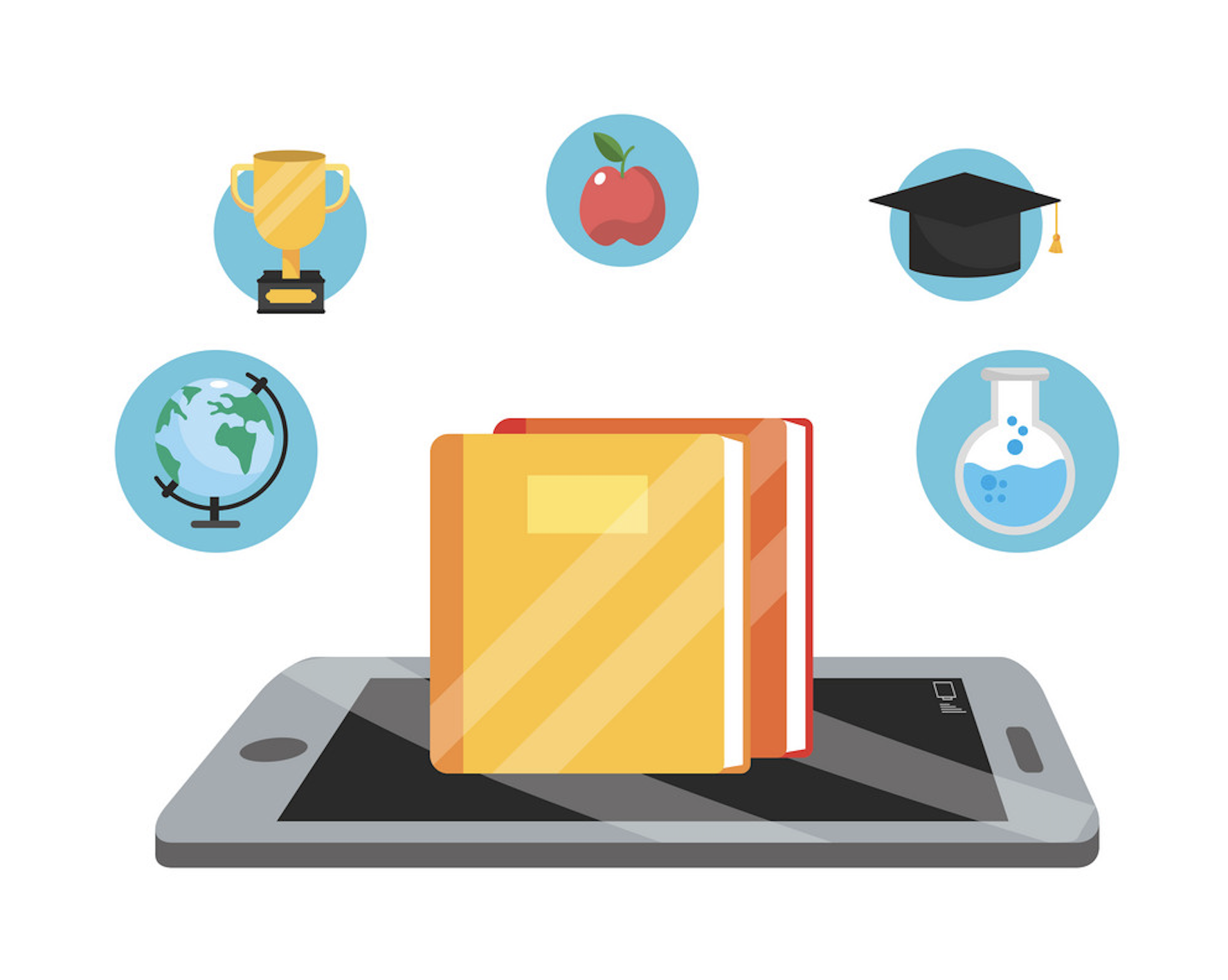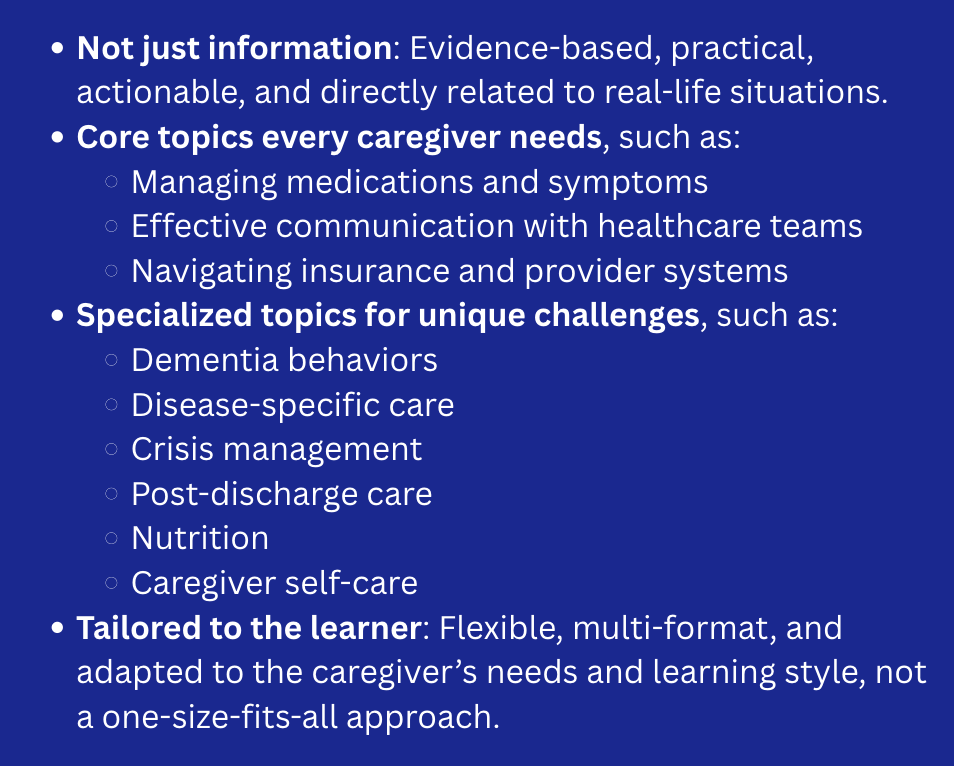Caregiver Education: The Missing Link To Better Outcomes And Lower Costs
Caregiver education is a critical but often overlooked part of healthcare. Families regularly care for loved ones with dementia, bipolar disorder, or other mental health conditions without training or support. In this article, we explore why caregiver education is the missing link to better health outcomes, lower costs, and a more sustainable care system.
Introduction: Caregiving Is A Full-Time Job Without Training Or Pay
If you’ve ever cared for a loved one with a chronic cognitive illness like dementia or bipolar disorder, you know how demanding and emotionally exhausting the experience can be. Each day brings a new challenge, from sudden mood changes to memory lapses and moments of disorientation. Caregiving in this context means navigating a constant state of unpredictability, where emotional intensity and confusion can arise without warning.
It’s a deeply complex role that goes well beyond basic physical care or structured recovery routines. For many, caregiving becomes a full-time job that consumes every part of their life. Yet unlike healthcare professionals, family caregivers step into this role without training, without support, and in most cases without compensation. Still, the role requires that they handle critical responsibilities like managing medications, coordinating appointments, and intervening in times of crisis.
It’s no wonder that so many caregivers end up overwhelmed. They perform essential healthcare tasks, but without the tools or guidance that professionals rely on. The impact is felt on both sides: caregivers burn out, and when they do, the people they care for experience worse outcomes.
But it doesn’t have to be this way. These challenges are not inevitable. With structured caregiver education and support, we can improve experiences for families, achieve better outcomes for patients, and create a more sustainable healthcare system overall.
The Training Gap: Caregivers Are Left To Figure It Out Alone
When we think of a mental health care team, we usually picture doctors, nurses, psychiatrists, therapists, or social workers. But often missing from that picture is one of the most critical team members: the family caregiver.
This is the person who first notices when something is off. The one who remembers when medications were changed, what side effects showed up, and how their loved one has been sleeping. And they do all of this while coordinating appointments, managing crises, and advocating for treatment when something doesn’t feel right.
Despite these contributions, caregivers are rarely included in treatment planning or education. Most receive no formal training and are left to navigate complex situations on their own.
Some turn to valuable programs like NAMI’s Family-to-Family course, an eight-week peer-led program that offers foundational education and emotional validation. But not every caregiver has the time or flexibility for a set schedule. Others rely on quick online searches to answer urgent questions or guide their decisions, especially in moments of crisis.
Searching for mental health guidance online is often like trying to hear a single voice in a crowded room. The information is dense, scattered, contradictory, and usually not specific enough to help. Caregivers are forced to make high-stakes decisions based on incomplete knowledge, often with no one to confirm they’re making the right call.
This process is frustrating, risky, and entirely avoidable. Caregivers don’t need to be medical experts, but they do need to be equipped. And that’s where caregiver education comes in.
Caregiving Is A Hard Job — It Deserves Real Training
We wouldn’t ask a nurse to walk into a hospital without training. Yet every day, we expect family caregivers to take on complex medical and emotional responsibilities with no preparation.They interpret symptoms, coordinate care across providers, manage medications, and respond to psychiatric or medical crises, all without a playbook.
Treating caregiving as the critical role it is means providing structured and practical education. Good training reduces mistakes, and it builds confidence, protects caregivers’ own health, and improves the quality of care delivered. Most importantly, it sends a clear message: caregivers are not invisible. They are essential.
What Does Quality Caregiver Education Look Like?
Every caregiver deserves access to essential knowledge. At minimum, this includes how to manage medications, monitor symptoms, communicate with providers, and navigate the larger healthcare system. These skills form the foundation for confident, informed care.
But core knowledge is just the starting point. Caregivers often need more specialized guidance depending on the condition they’re facing. Caring for someone with dementia requires different strategies than caring for someone with bipolar disorder, schizophrenia, or post-hospital discharge needs.
The most effective educational programs are tailored and use adaptable formats that match the way caregivers actually learn. That means:
Short, focused videos for learning after a long day
Interactive sessions that build confidence through practice
Written or audio resources for quick reference anytime
Formats that fit different schedules and attention spans
At The Care Hack, we apply principles from implementation science and adult learning theory — including microlearning, multimodal design, and cognitive load reduction — to ensure our training is not only accessible, but also actionable. Training works when it sticks.
Structured programs like NAMI’s Family-to-Family are an excellent foundation, but they can be complemented and extended through digital tools that provide on-demand, personalized support long after the initial training. When we think about delivering that kind of knowledge, format matters just as much as content. Caregivers need resources that fit into their real lives, not materials that gather dust in a drawer. That’s where modern approaches to education can make all the difference.
Real-World Learning, Not Just Pamphlets
Traditional handouts and brochures often miss the mark. They can be too generic, too dense, or simply hard to apply in the moment. Caregivers benefit most from materials that are easy to digest and can be used right when they’re needed. Modern tools make this possible by meeting caregivers where they are, fitting naturally into the flow of daily life.
Our approach combines:
Clear, concise guides for quick reference
Short, engaging videos that explain key concepts in minutes
Audio lessons for learning on the go
Interactive workshops that provide practice and feedback
We also focus on micro-learning: breaking information into short, manageable lessons that caregivers can complete in just a few minutes. Everything is delivered through a digital platform, so learning is available anytime, anywhere.
The Financial Case: Reimbursement Opportunities
Caregiver education improves patient outcomes, and it can also strengthen a provider’s bottom line.
Medicaid and Medicare recognize caregiver training as a reimbursable service through specific billing codes. This means providers can deliver valuable education while unlocking new revenue streams.
The Care Hack platform makes this simple. Our system allows clinics to offer high-quality, trackable caregiver education with minimal staff effort. It’s designed to be easy to implement, sustainable, and fully compliant with documentation requirements.
Educated Caregivers Strengthen The Whole System
When caregivers have access to the right information and support, the entire care experience improves.
Prepared caregivers…
Spot red flags earlier
Follow care plans more closely
Communicate more effectively with providers
This leads to fewer emergencies, better treatment adherence, and more stable care at home. It also improves relationships because caregivers who feel respected and supported are more engaged and collaborative with the care team.
Conclusion: Educating Caregivers Is Smart, Sustainable Care
Caregivers are already doing the work. With training and support, they become skilled allies in delivering better care.
For providers, investing in caregiver education means:
Fewer crises
Lower costs
Stronger provider-caregiver relationships
Better patient outcomes
And for caregivers, it means something even more important: the confidence to keep going.
At The Care Hack, we make it simple to equip caregivers at scale, with compassion, flexibility, and clinical rigor.
Let’s build a system where families aren’t left to figure it out alone.


